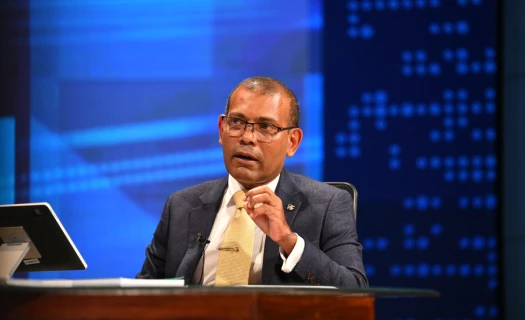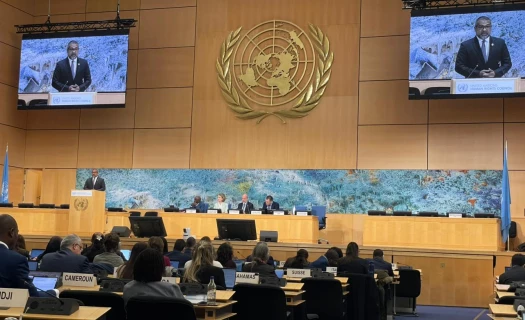You Can’t Intermit Justice

As we look back at the pandemic experience in Maldives, stringent lockdown measures endured to refrain the spread of COVID-19 meant that the judiciary was only able to dispense minimal functions, in limited aspects. Since health security necessitated extended lockdowns, the Supreme Court of Maldives initiated seeking alternatives so that the administration, delivery, and access to justice could prevail through the crisis without severe impact.
This resulted in regulations to hold court proceedings online (applicable to the entire judiciary), and the Supreme Court commencing online hearings less than three months after the lockdowns were announced. To ensure that the public was made aware of how the Supreme Court proceedings were conducted, and that the hearings were in ‘open court’ as required by the Constitution, Supreme Court also decided to live cast their online hearings. This complemented pre-pandemic decisions of the Supreme Court to upload audio recordings of its proceedings onto its website.
Today, while the measures built as a response to the pandemic may no longer be a requirement, the judiciary continues to use online hearings, and judges across the country are encouraged to use the online platform. This is because digitally supported hearings have in fact contributed to a much demanded as well as to increased transparency of the judicial process, which ultimately has enhanced and equally spread effective access to justice. It has also helped with better utilization of time and has proved more cost effective to end-users. It was and continues to be a smart solution to many hurdles, and a means to a harmonious delivery of justice across the country.
This digital transformation did not come without resistance, and the process - still in evolution - remains a journey moving towards its aspired destination.
To accompany this change in the modality of work, judges and court staff continue to be provided with a number of trainings so that capabilities in the use of tools are enhanced and new skills and means to embrace core functions of the courts and the delivery of justice may be acquired. In parallel, digital infrastructure is being deployed and will need to be constantly maintained and help-desked so that courts are able to provide services with an array of complementary support as required by this digital shift. The role of the Maldives development partners in effecting these changes have been substantial.
Nonetheless, challenges remain clear in the realm of human resources with constraints on the one hand related to the capacity of existing staff, and on the other due to the lack of a fully equipped professional cadre of staff. This is exacerbated by the fact that many courts across the archipelago have very limited material resources to administer justice as required and expected of them, let alone adopt new innovative approaches in the administration of justice.
Appreciating that access to justice is a human right, this poses several challenges for court users, more specifically to vulnerable persons and groups, such as women, now confronted by the compound challenge of bypassing digital divides on top of a recalcitrant unfamiliarity with the rule of law. These obstacles are further magnified where there are intersectional disadvantages present – because such realities are often overlooked or misunderstood by the system.
Hence, while significant strides have been made to reinforce basic principles of autonomy, quality, and accountability within the judiciary, there is a renewed need to recognize that there still remains a lot to be done – and that perhaps such efforts are crucial to ensure efficacious administration of justice, especially outside the capital, Malé.
The call for a more resilient judiciary, and the necessity to convert lessons learnt from the pandemic into opportunities strides sharp.
Understanding that the efforts which led to the digital shift within the judiciary in Maldives is by no means a global phenomenon, we need to tap into the instinct that allowed Maldives to successfully operate during the pandemic to craft focused solutions and methods to resolve existing hurdles.
It is time to leapfrog and fast track the seeds of change being put in place, without compromising the values of the judicial system, irrespective of challenges faced. At the end of the day, without ensuring harmonious quality of services and an accountable judicial system that facilitates access to justice for all, autonomy of the judiciary will remain elusive.
By Justice Aisha Shujune Muhammad and Enrico Gaveglia














